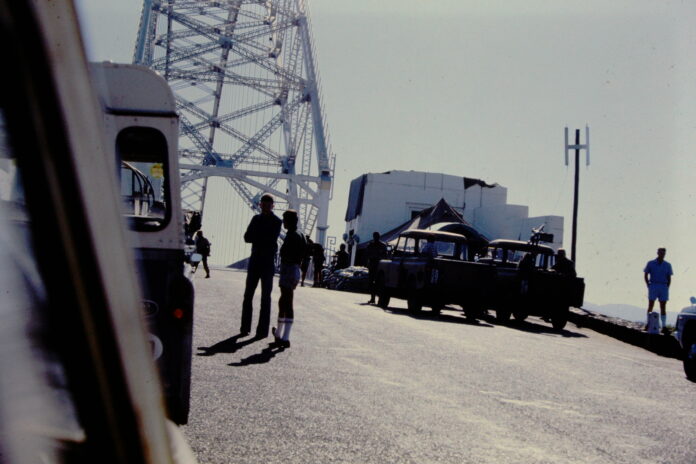Most of us are afraid, most of the time. Well, not consciously — and the fears are generally rational. We want to stay away from trouble that could harm us so we avoid some behaviours and repeat others. If we were generally fearless, we probably would do extremely reckless things, and that isn’t good for anyone.
Yet fear’s emotional power is a two-edged sword. If it protects us from danger, it also causes not to take rational and responsible risks. The old cliche? “no risk ?. . . no reward” has some application in the real world.
The solution to this challenge, in my experience, is a concept close to the heart of successful entrepreneurs — rational risk. Related to it is the concept of perceived vs. actual risk. If we do something or take actions that appear risky to others but are really quite safe, we achieve an edge. The key to successful rational risk is acting responsibly based on applied specialized knowledge.
I’m fortunate that I learned these concepts as a young adult, when I headed to live in an African country at the end of a seven-year civil war. There, I obtained work as a journalist, and purchased a motorcycle.
Risky, eh? Well, I had been to Africa two years previously, travelling through the Sahara, Congo, and then on my own to southern Africa — but took the first part of the trip in an organized trans-Africa adventure tour; in other words, a controlled environment with guides and enough safety measures to make what would seem to be a dangerous thing really quite safe. By the time I was ready to travel on my own, I understood enough about the continent and what to do and what to avoid to handle situations safely.
By the time I took my second journey, to live as an expatriate, I had enough experience and knowledge to understand the rules of the game. Experienced journalists told me that Rhodesian authorities would put me on the next plane out of the country if I declared myself as a journalist on entry. So I arrived as a student/tourist. I quickly connected with other young expatriates who explained to me the country’s work permit process. This knowledge allowed me to apply for work at the local newspaper company, demonstrate my experience, and receive a job offer. Then, with a job offer in hand, and knowledge of the immigration rules, I applied for a work visa — and obtained landed status — with the visa marked “journalist”.
This visa allowed me to live in the country through the end of the civil war, and survive a run-in with the authorities, who got wind that I wasn’t exactly writing wonderful pro-Rhodesian stories for a Canadian news service. (I’ve never had a racist bone and, well, Rhodesia was a time-warp experience; think of Mississippi in the 1950s.)
But, heck, I had a work permit. I told the police officers I would not cause more trouble, stopped writing (temporarily) for overseas audiences, and focused on trying to learn — and failing miserably — the art of motorcycle maintenance.
Of course, back at home, people thought I was really daring and adventurous, and I suppose, from the perspective of individuals who would never think of heading off to Africa in a war-time situation, I was doing some wild things. But a few facts get in the way of this picture. As a “new immigrant” I had a military service exemption, which conveniently lasted long enough to allow me to avoid any risk of actually being required to serve in any form of armed force. I stayed in the city and avoided any sort of trouble. (And remember, I wasn’t racist, and while I could live comfortably with the whites, local black people also could see my values.)
When I returned home, even in the height of a recession, opportunities beckoned, in part because people perceived this risk-taking spirit. I allowed them to think that, though I’ve known many people who have done far riskier things (like smoking or filling up on endless oversized portions of junk food.)
Nevertheless, the lessons learned here have shaped my approach to business and marketing:
Specialized knowledge is the golden sword
If we know about our trade, industry, craft, or business aspects to the point that we are true experts — where we really have mastered our skills — we can understand our specialized environment, and then apply the knowledge in ways that appear risky, but are really rational.
Diverse talents and interests (with intense focus) help on the risk profile
If we can combine two specialized knowledge elements, we gain an edge. Knowledge of journalism and Africa allowed me to become a foreign correspondent/expatriate.
Deliberate action is vital
There comes a time when we need to dive into the unknown. I wish I could provide the exact point where the knowledge acquisition process should be combined with action, but this is not always easy to define. However, I can confidently say that if you have decided to combine two specialized talents (where your knowledge is validated by others around you) into a seemingly daring action, your chances of success are extremely high. I’d go for it.
Action plan
Take note of your two really strong strengths and then think of how you might combine these in some activity or initiative (in this blog’s context, within the marketing sphere). Then proceed. You almost certainly will succeed beyond your dreams, and if things don’t go quite right anywhere along the way, your specialized knowledge will help you navigate the process and escape unscathed.
Do you have your own risk-taking success stories? Please share them here in a comment, or by email to buckshon@washingtonconstructionnews.com.


